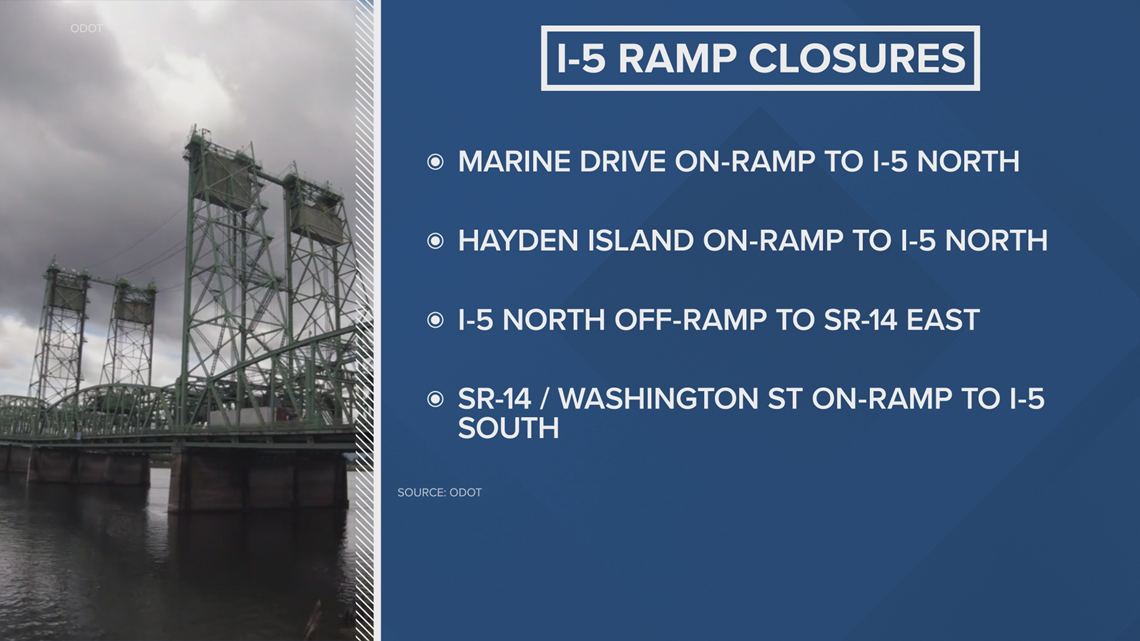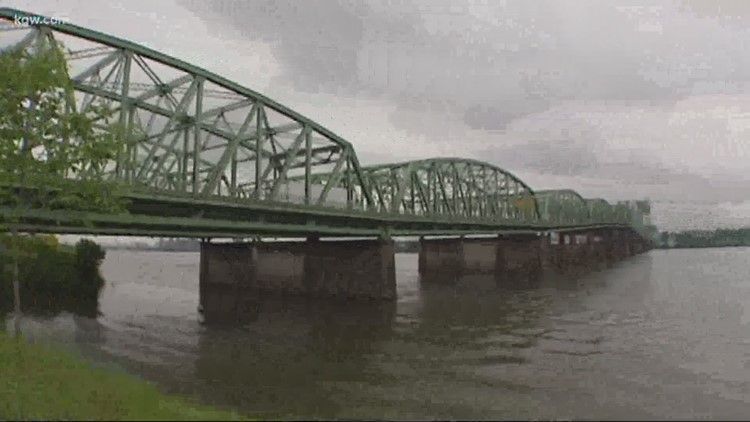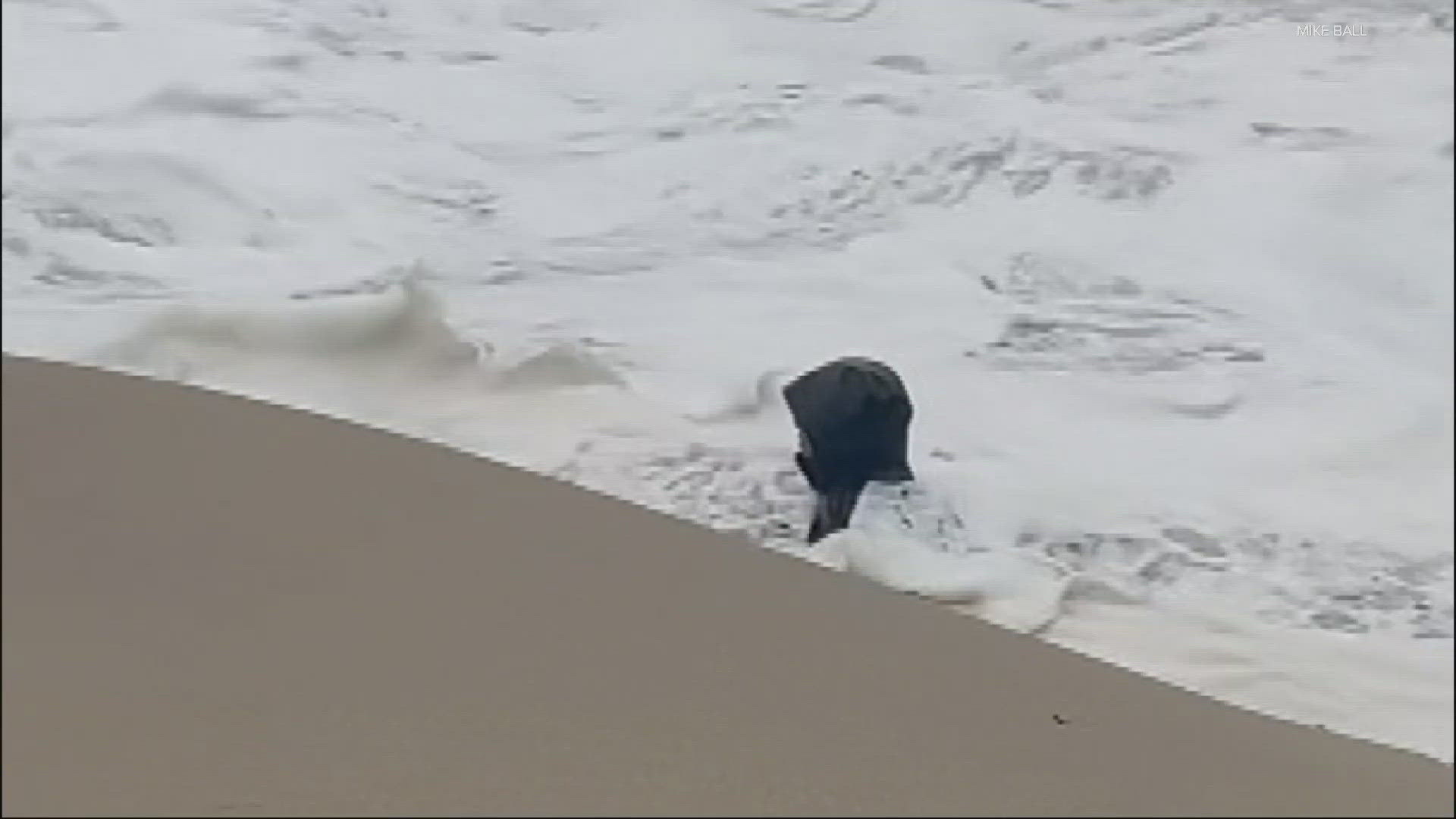PORTLAND, Oregon — "Go another way, go another day or just don't go" was a saying thrown around a lot the last time there was a major maintenance closure of the Interstate Bridge. That was more than 20 years ago, and traffic has only gotten worse.
A 9-day closure of the northbound Interstate Bridge started midnight Friday.
ODOT is doing the work so they can repair some aging parts in the northbound lift span. It's officially known as the Trunnion Replacement Project.
RELATED: Interstate Bridge overnight lane closures begin as ODOT prepares for northbound closure next month
Unofficially, it could be trafficgeddon. If not for the COVID-19 pandemic that has greatly altered traffic patterns, 137,000 vehicles a day would be subject to never-ending backups and clogged alternate routes
It will be interesting to see just how much COVID-19 impacts the commute during this closure. Regardless, there are still many people that rely on this bridge daily and that's going to make for a rough week ahead.
All traffic will use the southbound span while the northbound is closed. During the morning commute, two lanes will flow southbound; during the afternoon commute, two lanes will flow northbound. ODOT will move a zipper-barrier to make the transitions twice each day.
So you'll still be able to get where you're going, but it might take forever to get there. ODOT and WSDOT have warned of severe congestion and recommend drivers change their commute times, routes or methods.
Four ramps will also be closed during the project.


To help ease some of the pain, C-TRAN buses will now be able to use the left shoulder of I-5 southbound, from 99th St. to the Interstate Bridge to bypass the expected delays.
This bus on the shoulder concept first came to Vancouver in 2017 along parts of SR-14. C-TRAN says it made an immediate impact for the positive on schedule reliability.
There's currently a one-year pilot project on Interstate 205, both directions over the Glenn Jackson Bridge. The I-5 bus on the shoulder lane is permanent, and will help nine C-TRAN routes stay on schedule - or at least a little closer to it.



